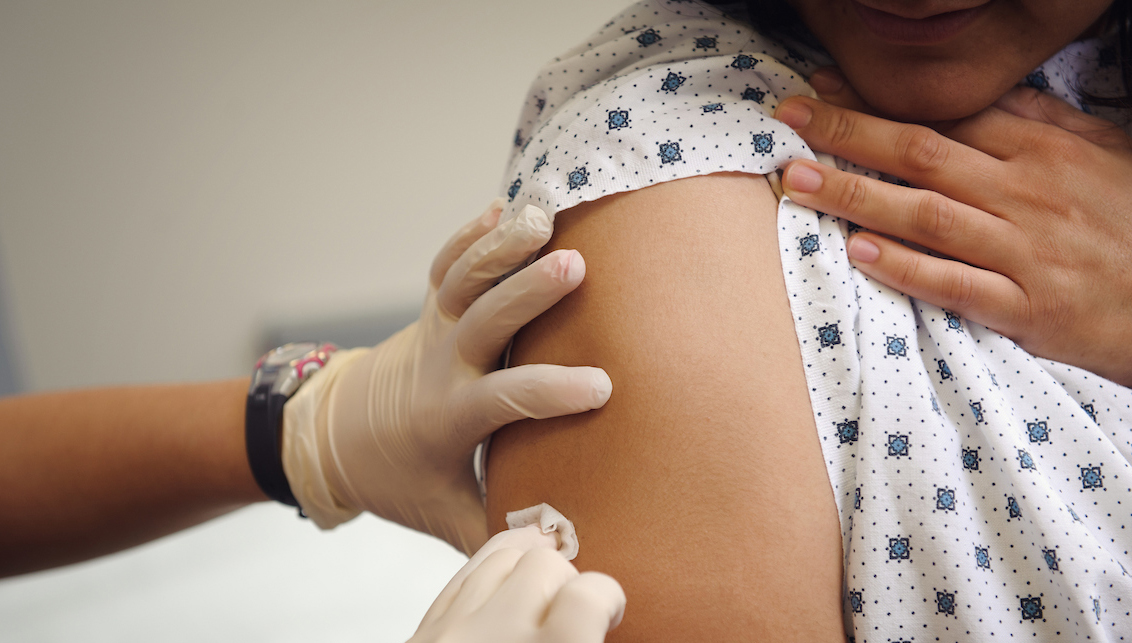Seven tips for a healthy pregnancy
The choices you make before and during pregnancy could make a difference in the overall health of your baby.

“Women may continue making unhealthy choices before they even know they’re pregnant,” says Jean Brender, RN, Ph.D., associate dean for research and professor at the Texas A&M Health Science Center School of Rural Public Health. “What makes this so risky is that most birth defects develop during the first three months of pregnancy. If a woman happens to get pregnant but continues to make poor health choices, her child is at a higher risk for developing birth defects.”
Brender suggests that women who are pregnant or may become pregnant follow these prenatal health guidelines:
1. Consume a multivitamin with 400 mcg of folic acid daily to help prevent birth defects
Recent studies conducted by researchers at the Texas A&M School of Rural Public Health found taking a daily supplement containing vitamin C during the first trimester of pregnancy, while taking nitrosatable drugs (i.e. some decongestants, antihistamines and antibiotics), can lower the odds of certain birth defects associated with these drugs. This finding underscores the importance of taking a daily prenatal or multivitamin and eating a healthy diet with several servings of fruits and vegetables. It is important, however, for women to consult with their healthcare providers concerning any medications taken during pregnancy, including over-the-counter drugs.
2. Cease smoking and drinking alcohol
Both women who are exposed to smoky environments and women who smoke may be more likely to deliver babies with birth defects. as women who actually smoke. Babies who have experienced these conditions in utero can be born with a low birth weight or oral clefts in the lips and palate. Women who smoke are also more likely to have babies with low birth weight.
There is also a high risk for Fetal Alcohol Syndrome (FAS) if women drink alcohol during pregnancy. Alcohol consumption during pregnancy can also cause intrauterine growth retardation (low birth weight for gestational age) and other development delays in babies.
“We can’t identify a safe amount of alcohol for pregnant women to consume,” warns Brender. “If you’re thinking about getting pregnant, just don’t drink.”
3. Avoid exposure to toxic substances such as cleaning chemicals and pesticides
These include items with solvents, pesticides, or heavy metals like lead. Brender recommends keeping the area well ventilated and wearing gloves if you are using any types of chemicals in and around your home
4. Limit fish intake
Some types of fish contain mercury that can harm the fetus. Shark, swordfish, king mackerel and tile fish should be cut from your diet until after pregnancy. Some fish that are low in mercury, and therefore safer options for pregnant women to consume, include shrimp, canned light tuna (not albacore tuna), salmon, pollock and catfish.
5. Avoid exposure to potentially infectious materials such as animal feces
If you have a cat in your household, it is important to remain cautious when changing the litter box. Cat feces can carry toxoplasmosis that can cause serious health problems—like blindness or mental disability—for your unborn baby.
Cats become infected with toxoplasmosis by ingesting raw meats or other infected rodents, birds or small animals. The parasite is then passed to the cat’s feces, which can lead to exposure when handling the litter box.
To prevent toxoplasmosis, wear gloves and change the litter in a well-ventilated area, or have someone else change it for you.
6. Make healthy lifestyle choices
It is also important to maintain a Body Mass Index (BMI) between 20 and 25. If you are not in this range, do not participate in an extreme diet. Dieting can rob your body of the necessary nutrients that both you, and your baby, need to thrive. If you are concerned about your starting weight during pregnancy, talk to your physician about a safe and healthy nutrition and exercise plan.
“There can be problems for women who are overweight or who are underweight,” says Brender. “At the end of the day, you should remember that a healthy weight means a healthy baby.”
7. Limit consumption of drinking water that is high in nitrate
Studies show consumption of water that is high in nitrate, especially during the first trimester, may be associated with the development of birth defects. Private wells in agricultural areas are the most likely to have higher nitrate levels.
Brender advises having well water tested for nitrates or consider switching to bottled or filtered water (through reverse osmosis). Women whose drinking water source is from a private well should consult with their local health department to determine a water testing facility or call the federal Safe Drinking Water Hotline at 800-426-4791.
Media contact: media@tamu.edu

